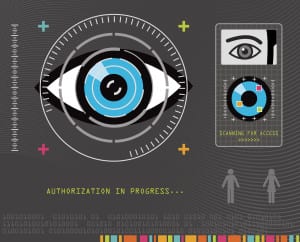EyeVerify is adding its voice to the chorus decrying password security. In a new blog post, the company details the many reasons why passwords are terribly inadequate for contemporary users.
 The post’s author begins with a list of common password guidelines, such as ensuring that a password has a mix of letters, numbers, and special characters; that it doesn’t follow a simple pattern; and that it should be changed every 30 days. While these are all sound recommendations so far as password security goes, they also become extremely problematic when one considers that contemporary users have to manage tens and possible hundreds of passwords. If we can summarize password guidelines as essentially suggesting they be hard to remember, and constantly changing; and if we consider that the average user would be dealing with 300 different passwords a year if she actually changed a password every 30 days, it becomes very clear that, as EyeVerify puts it, “the situation is untenable.”
The post’s author begins with a list of common password guidelines, such as ensuring that a password has a mix of letters, numbers, and special characters; that it doesn’t follow a simple pattern; and that it should be changed every 30 days. While these are all sound recommendations so far as password security goes, they also become extremely problematic when one considers that contemporary users have to manage tens and possible hundreds of passwords. If we can summarize password guidelines as essentially suggesting they be hard to remember, and constantly changing; and if we consider that the average user would be dealing with 300 different passwords a year if she actually changed a password every 30 days, it becomes very clear that, as EyeVerify puts it, “the situation is untenable.”
That’s why the most popular passwords used every year—things like “password” and “123456”—are also the most vulnerable to hacks. Of course strong authentication solutions the company’s raison d’être: EyeVerify’s eye vein-based biometric technology is designed to act as a more secure, reliable, and easy-to-use alternative to password-based verification, and is already proving very appealing to sectors such as financial services, where secure user authentication is of critical importance. Along with the various other biometric solutions emerging to replace the password, EyeVerify’s Eyeprint ID technology could help to make a great many users’ lives much easier.
—
February 4, 2016 – by Alex Perala


Follow Us